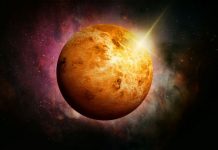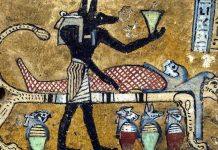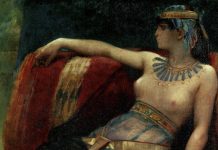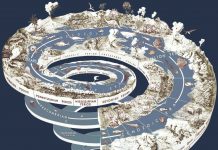Myths about the “Golden Age” can be found in ancient cultures around the world. They tell about distant times, long before the beginning of written history, when humanity lived in an ideal state of utopia. It is believed that the “Golden Age” was a period of peace and harmony when human beings were pure and immortal.
There was no wealth, no poverty, no fear, no pain, no sadness, no need for physical labor, because the earth produced food for everyone in abundance. In literary descriptions, the “Golden Age” always ends because of some destructive event that causes the fall of humanity.
For the Western reader, a familiar example is the myth of the Garden of Eden. The story of Adam and Eve’s loss of innocence and their expulsion from the Garden of Eden is in fact a metaphor for the development of self-awareness and problems caused by the emergence of the human ego, such as social and sexual inequality, death, war, genocide, despotism, sin, greed, drug abuse, etc. Eden was not just a specific time or place that existed in prehistoric times; it was and remains a state of mind.
Note: If our ancestors really were immortal, then shouldn’t they still live among us? No, of course, because immortality has nothing to do with the body – nor does it require that the individual soul survive the death of the body. Mortality and immortality depend entirely on the presence or absence of the ego-thought, or I” thought. The ego is an abstract concept based on language, and only a creature capable of perceiving itself as autonomous is capable of experiencing life and death; that is why enlightenment involves the reduction of thinking.
Enlightened people regain immortality by losing the acquired sense of separation, and not by living forever in a form – corporeal or incorporeal. Individuality is an illusion, and the Divine Self is the only reality. Before the beginning of written history, there were no individuals; therefore, people were immortal.



































